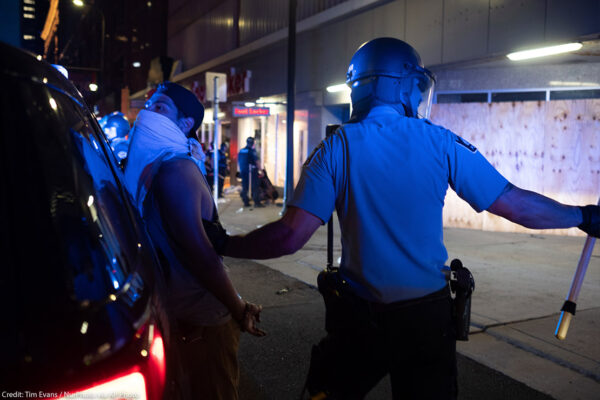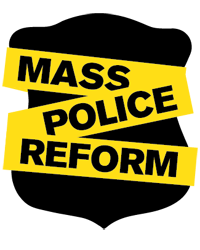
By: April Rodriguez, Paralegal
It’s time that we abolish the doctrine and begin funneling resources away from law enforcement and into community services.
Earlier this month, Mississippi federal court judge Carlton Reeves reluctantly held that a white police officer who detained, interrogated, and illegally searched Clarence Jamison, a Black man driving a Mercedes-Benz, for nearly two hours despite clearing multiple background checks, could not be held accountable for his actions. Why? Because his hands were tied by qualified immunity. Judge Reeves relates his frustration in his opinion:
“Judges have invented a legal doctrine to protect law enforcement officers from having to face any consequences for wrongdoing. The doctrine is called ‘qualified immunity.’ In real life it operates like absolute immunity.”
Qualified immunity is a legal defense that can shield police officers from liability for misconduct. Once an obscure legal doctrine, it has become a central focus of activists’ calls for police accountability following nationwide protests over police brutality. In fact, officer Derek Chauvin, the cop who killed George Floyd by kneeling on his neck for over eight minutes in a video seen around the world, might evade accountability in a civil suit through qualified immunity.
The Supreme Court created the first version of this defense more than 50 years ago as a limited amendment to the Civil Rights Act of 1871, also known as the “Ku Klux Act” because it was meant to protect the rights of freed slaves after the Civil War in the face of the Klan’s reign of terror. Under Section 1 of the act, now referred to as Section 1983, people were given the right to sue state government officials for violating their constitutional rights and hold them liable for damages.
Starting in 1967, though, the court amended the law — officers would be shielded from liability if they could show that they acted in “good faith” and had “probable cause” for their actions. Over time, the court has stretched the doctrine to where it is today: An officer who has violated the Constitution cannot be held liable for damages unless the violation was so “clearly established” in the law that any reasonable officer would have known that their actions were unlawful. This requirement is nowhere to be found in the Constitution or any federal statute. Nevertheless, the Supreme Court has developed an absurdly narrow definition of what counts as “clearly established” law.
To meet the “clearly established” standard, the burden is now on the victim to find a previous case with facts nearly identical to their own. This is the burden that fell on Alexander Baxter, whom the ACLU represented in a petition that the Supreme Court recently denied. Mr. Baxter, homeless at the time of his arrest, was chased by two Nashville police officers and a police dog into a basement following a report of a residential burglary in 2014. Once there, Mr. Baxter surrendered by sitting on the ground and raising his hands into the air. Still, the officers unleashed the dog, which bit Mr. Baxter’s armpit, sending him to the hospital for immediate medical attention.
Without formal legal assistance and with limited access to the prison’s law library, Mr. Baxter later filed a hand-written complaint from prison, but a federal appeals court granted qualified immunity to the officer. The reason for qualified immunity? Mr. Baxter surrendered by sitting on the ground with his hands up, whereas in the closest prior case, the court ruled in favor of a victim who surrendered by lying down.
Yep, that’s it. Because Mr. Baxter could not point to a previously decided case where the suspect had also surrendered by sitting down with his hands up, the officer was off the hook. According to the Sixth Circuit Court of Appeals, without a case with identical circumstances, there was no way for the officer to clearly know that what he did was wrong.
But it’s even more problematic than that. Because the Sixth Circuit did not reach the question of whether the conduct was, in fact, illegal, the law still doesn’t clearly establish that police may not order a canine attack on a suspect who surrenders by putting their hands up. This means another officer could claim immunity for the same behavior in the future. It’s a never-ending catch-22: A victim must cite exact legal precedent to win their case, but because judges dismiss so many cases over slight twists of facts without deciding whether the underlying government conduct is unconstitutional, it’s increasingly difficult to create any legal precedent.
As District Court Judge Reeves writes in his powerful opinion, “Let us not be fooled by legal jargon. Immunity is not exoneration. And the harm in this case to one man sheds light on the harm done to the nation by this manufactured doctrine.”
Qualified immunity is one reason why police are emboldened to use excessive force without fear of repercussions. They know the law protects them, even if they may be violating the Constitution — a fact driven home by Judge Reeves as he lists a handful of the Black people killed at the hands of police. Senseless shootings like Jacob Blake’s and Dijon Kizzee’s will continue occurring because police officers are essentially allowed to gun down Black people with impunity. This is the abhorrent cost our society pays for qualified immunity.
Still, there is hope. More lower courts and even Supreme Court justices themselves are starting to question the doctrine, as indicated by Justice Thomas’ dissent from the Court’s decision not to take up Mr. Baxter’s case. It is no longer blindly accepted that the need to shield police officers from financial burden is more important than the need to hold them accountable and protect the rule of law. In fact, officers are virtually never at risk of monetary liability and have contributed to payments in less than one-half of 1 percent of civil rights damages actions. Most costs are paid by municipalities, insurance companies, or unions.
The Supreme Court should abolish qualified immunity and return Section 1983 to its original meaning. At the very least, it needs to give guidance to lower courts to make clear that a case with identical facts is not necessary to hold officers liable for their conduct. While these reforms will never repair the harm done to many lives or heal the trauma Mr. Baxter experienced, they will deter future police unlawfulness and, when such abuse occurs, increase the chances that its victims are compensated for the harms suffered.
Communities must also demand that other actors — Congress, police chiefs, mayors, and prosecutors — abolish the doctrine and begin funneling resources away from law enforcement and into community services like housing, education, accessible health care, and violence prevention programs. If we truly want systemic changes to policing, these are the institutions that will help communities grow and thrive.
